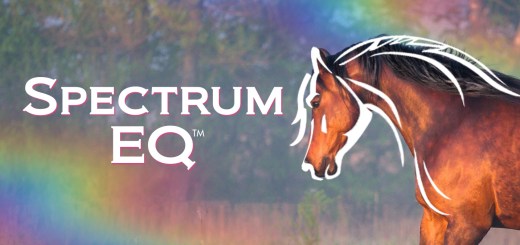
Five Steps to Complete Canine GI Support
Keeping our dogs healthy begins with what we feed them. After all, the gastrointestinal (GI) tract is the foundation of health and well-being, and plays a central role in immune system balance. But when it comes to providing complete GI support for dogs, food is not the only important contributor to health. Good bacteria living on our dogs’ skin help regulate the immune system, which may help protect the body from infection. And don’t forget an essential role of exercise: not only to keep your dog fit, but to produce those wonderful brain biochemicals called endorphins, which aid digestion. We’ll get to all that, but first things first:
1. Feed Real Meat. Although commercial kibble contains meat sources, nothing provide better GI support for dogs than raw or freshly cooked meat: bison, grass-fed beef, liver, cooked organic chicken, raw organic eggs, cooked organic eggs, cooked salmon, raw sardines, and marrow bones. Adding real meat to your dog’s diet helps to support the essential beneficial micro-organisms in the gut. Feeding some raw food several times per week provides live enzymes necessary for food digestion. Adding real meat to kibble promotes a healthy, well-balanced GI tract and can provide a variety of proteins that are important in reducing potential food allergies.
2. Feed Active Probiotics. Supporting the micro-biome of the GI tract depends on active or live beneficial micro-organisms. One of the easiest ways to ensure healthy colonization of the GI tract is to add plain organic yogurt or organic kefir to the diet. In addition to providing those beneficial micro-organisms, these foods provide additional calcium and vitamin D. Kefir supplies K2, which plays a key role in calcium metabolism. Yogurt supplies two types of bacteria, while Kefir supplies seven, as well as three beneficial yeast species that inhabit the gut.
If you choose to supplement your dog with a probiotic product, make sure the CFU’s (Colony Forming Units) are on the label; this tells you whether the probiotic is active. Look for CFUs ranging from 1 billion to 4 billion per serving. Dogs need a minimum 1 billion CFUs for colonization of the GI tract. Probiotic supplements that are micro-encapsulated are particularly beneficial because micro encapsulation protects the viable organisms from the hydrochloric acid in the stomach.
3. Feed a Little Fiber. Dietary fiber comes from vegetables, plants and grains. It offers GI support for dogs by helping prevent constipation and diarrhea. Fiber can also manage the wild swings in blood sugar often associated with diabetes and metabolic syndrome.
Dogs don’t need a lot of fiber, but they do benefit from quality fiber sources like organic pumpkin meal, cooked green beans, cooked sweet potatoes, apples, pears, blueberries and carrots. An occasional small serving of organic rice or organic oatmeal particularly in the cold months will provide another healthy source of fiber for dogs.
4. Let Your Dog Get Dirty. The skin’s surface is home to a surprisingly diverse community of bacteria, known as the skin microbiota. Recent research highlights that resident microbes on the skin greatly impact the functions of the immune system. When dogs roll in grass, dirt, manure, clay, and sand they expose their skin to the microbiota colonies in the ground, thereby increasing contact and colonization. Frequent bathing with shampoos or antibacterial shampoos not only dries out the skin, it also disrupts and can reduce the beneficial bacteria living on the skin.
5. Keep a Body in Motion: Dogs have a long history of working alongside us as farm dogs, hunting dogs, coach dogs, sled dogs, protectors, and herders. Dogs are genetically suited to spend hours scavenging, hunting, defending territory, and playing. Remember: deep down inside that Frenchie or little Pomeranian is a wolf whose survival depends upon moving.
Recent research has highlighted that dogs experience increased levels of endorphins after exercise, which consequently has positive effects on their behavior, digestion, and sense of well being. For many dogs, exercise is not a walk around the block…exercise is running, or going on a hike, or playing ball or Frisbee, swimming, chasing squirrels, going along on a bike ride, playing dog games with other dogs. Daily physical activity is as important to our dogs—and their GI support—as it is for us.
Kemosabe’s Favorite Raw Meal:
(added to Fromm kibble, divided among 4 Australian shepherds)
- 2 containers of sardines in either spring water or olive oil
- ½ stalk of celery
- 1 small handful of organic baby carrots
- ½ cup organic baby kale, or 1 big kale leaf
- 4 tablespoons organic pumpkin meal
- ¼ cup organic blueberries
Blend in food processor; mix with kibble, add water, and serve.





